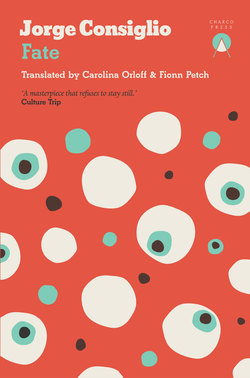Читать книгу Fate - Jorge Consiglio - Страница 9
На сайте Литреса книга снята с продажи.
ОглавлениеEverything was equally important in his head. He struggled to get organised. On the second Wednesday of July, he found himself walking down Cerrito Street with a fellow musician from the orchestra. They had just spent three hours at the Colón Opera House rehearsing a piece by Weber. Now they were relaxed, still flush with a sense of accomplishment. They were enjoying the sun and their shared indifference to the anxious traffic. Broadly speaking, their stories were similar: both of them came from small towns; both were third-generation musicians; both had started families in Buenos Aires. Karl was German; the other, Santiago, was Colombian. They were delighted with the city’s culinary offerings. They mentioned an Italian place that was said to have the best lasagne in town, as well as a steak house in the Monserrat neighbourhood. They spoke as if they were experts in beef cuts, cooking temperatures and pairing meat with different types of wine. They were making an effort. They were showing off what they knew, and their fervent language somehow bolstered their words. They were used to tracking their own rhythms. They were enraptured by their topics of discussion, but also by the register – the tone, the cadence – of their own voices. They were actual voice boxes. This is how they worked.
They had their musical instruments with them: Karl’s oboe, Santiago’s viola. They crossed Lavalle Street. And a few metres from the corner, they ran into a group of schoolgirls in their tartan skirts. The girls were blocking their way as they milled outside a newsagent. The pavement was wide, but the two musicians decided to step down onto the road to circumvent them. Karl adjusted the strap of his oboe case. And in that very instant, he realised that one of the girls – he was struck by her beauty as she distractedly handed a hundred-peso note to a schoolmate – reminded him of his eldest daughter, whom he hadn’t seen in five years. Five years, he said out loud, but the noisy exhaust of a passing bus drowned him out. The city adapted to even the most intimate moments. Karl had a vision: the girl’s hair – a compact mass – had a life of its own, independent from the rest of her body.
He’d planned to say goodbye at the corner of Corrientes Avenue, but something indefinite – the balmy weather, the pleasant conversation – made him change his mind. They decided to step into a bar. A long counter, five tables in a row. They ordered black coffee and regular sandwiches, which were brought to them toasted, but didn’t complain. It even amused them, the mistake. The sound of a radio began to filter through the background noise. The light streaming in from the street got tangled in Karl’s hair before it spilled onto the table. Mostly they spoke about Germany. Karl detailed his routine as a conservatory student in Dresden. His account was administrative in tone: the day as a succession of demands. Suddenly, the electric drone of the radio seemed to sharpen and take on shape. It was a bolero. Karl abruptly changed the subject. Somehow, he found his phone in his hand. He brought up pictures of his wife, Marina Kezelman. She’s a meteorologist, he said. She’s got a postgraduate degree from the National Research Institute, he added. She’s had a government job for seven months now. Sometimes, she travels to different provinces to assess the weather conditions in desert areas. She’s part of an interdisciplinary team. The Colombian finished his sandwich in a single gulp. Seen from outside, the musicians sketched an old-fashioned scene. There was something unsettling about them. They were characters from another era.
